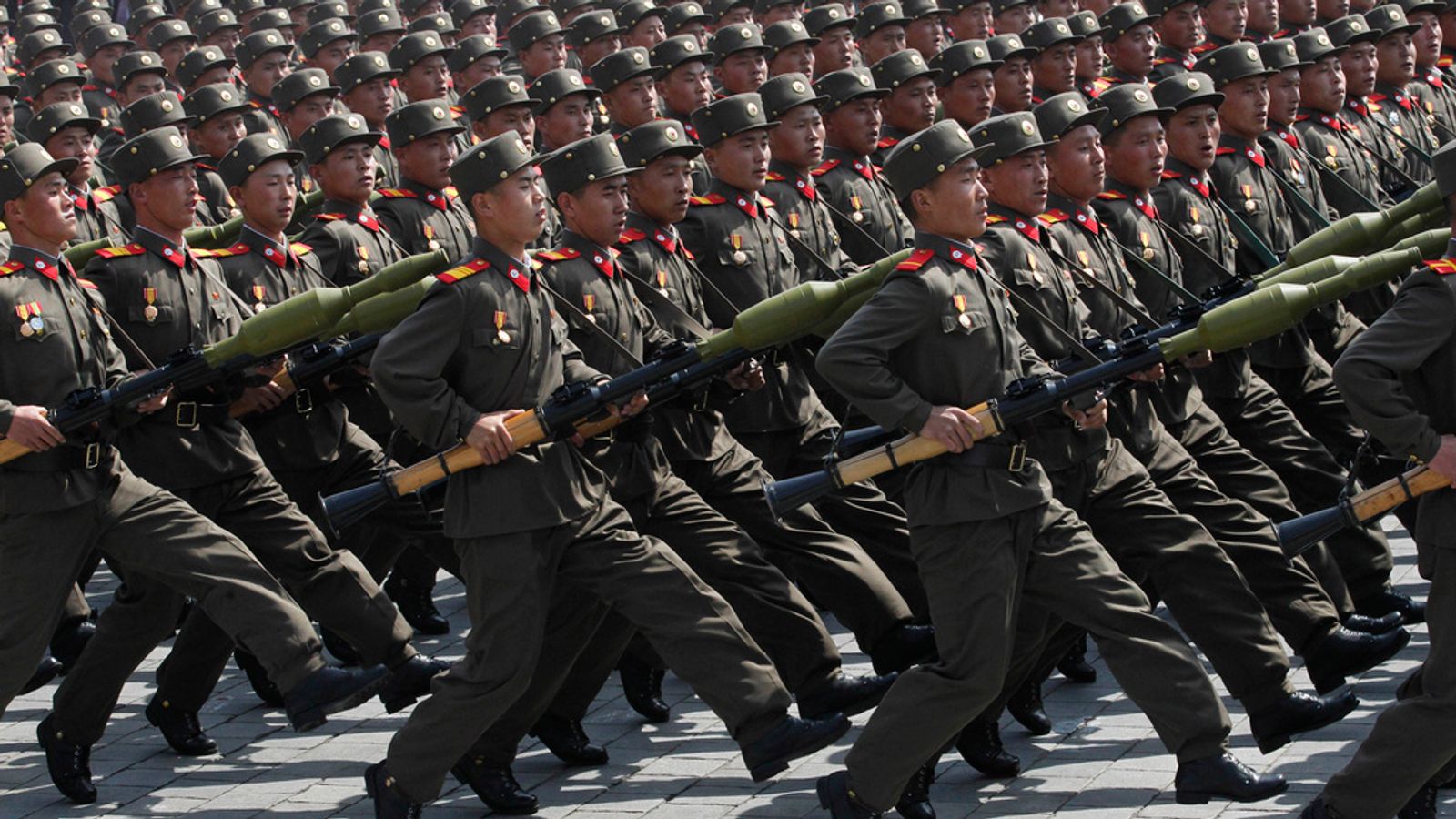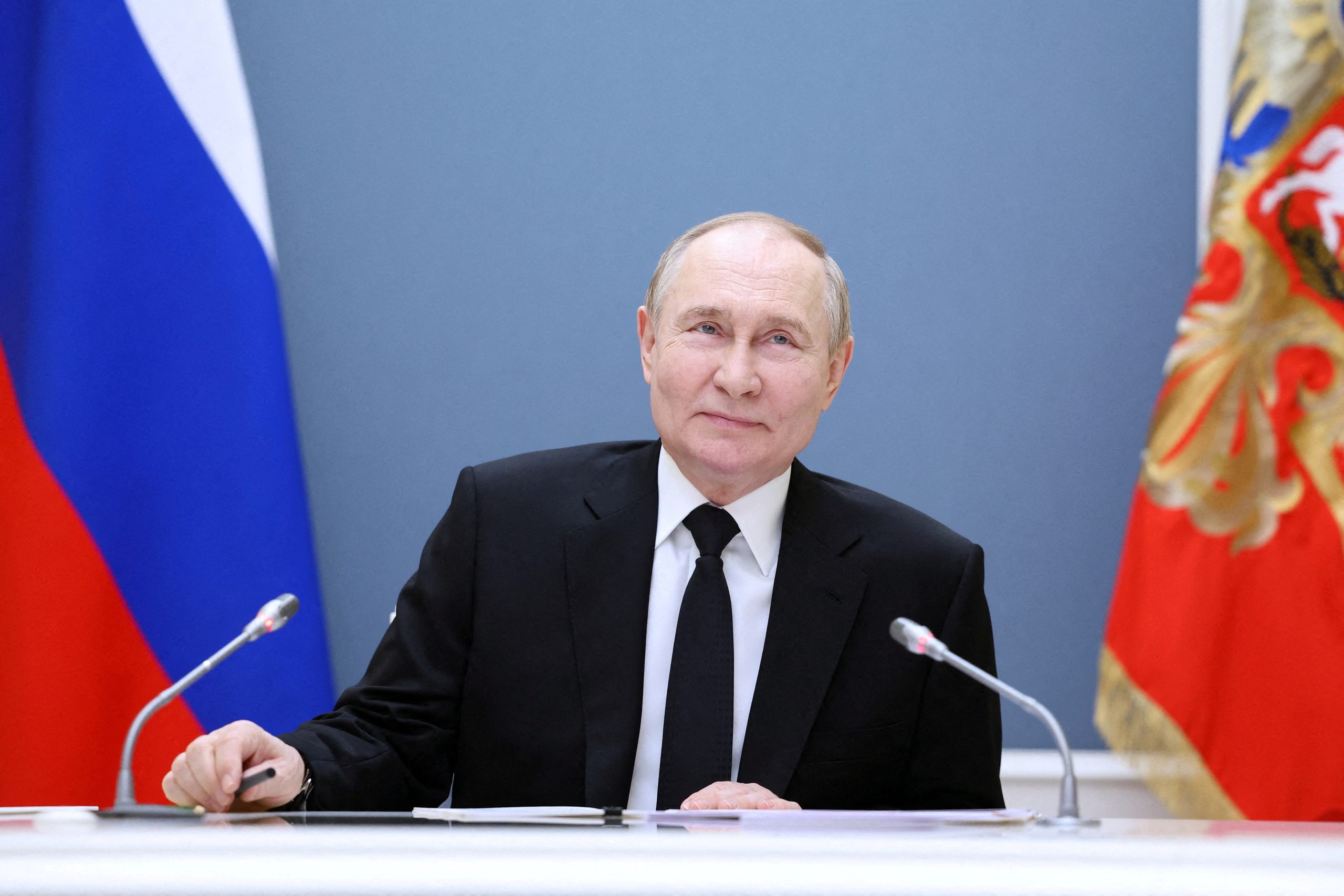The geopolitical landscape is facing a critical new challenge, as the close cooperation between Russia and North Korea escalates to unprecedented levels. Seoul has raised alarm over the deployment of North Korean troops to Russia, demanding their immediate withdrawal amid concerns that they may be trained for combat in Ukraine. According to South Korean intelligence, an estimated 1,500 North Korean soldiers, including members of elite special forces, have already arrived in Russia. If these reports are accurate, this development represents a serious escalation in the Russia-Ukraine conflict and a potential turning point in global security dynamics.
In response to this disturbing trend, South Korea, along with its international allies, has pledged to take all necessary measures to counter the implications of North Korea’s growing involvement in the war. For its part, the Kremlin maintains that its military cooperation with Pyongyang remains “within the framework of international law” and is not aimed at any third party. However, this assurance has done little to quell the rising concerns across the international community. The involvement of North Korean troops in the conflict, no matter how limited their role, poses a host of security, diplomatic, and strategic challenges that could reverberate far beyond the battlefields of Ukraine.
The Russia-North Korea Nexus
The ties between Moscow and Pyongyang have deep roots, shaped by Cold War politics and mutual interest in opposing U.S. influence in East Asia. While Russia has historically provided North Korea with diplomatic and economic support, the intensity of their cooperation has fluctuated over the years, particularly in the post-Soviet era. However, in recent years, as both countries have found themselves increasingly isolated on the global stage, their relationship has intensified.
In June, Russian President Vladimir Putin and North Korean leader Kim Jong Un signed a bilateral security pact, pledging mutual assistance in the event of external aggression. This agreement has drawn widespread condemnation, as it not only cements military ties but also signals a broader geopolitical alignment between two of the world’s most isolated regimes. The security pact has paved the way for joint military initiatives, with North Korea supplying Russia with arms and, now, personnel. In this light, the deployment of North Korean troops to Russian territory seems less like a sudden move and more like a calculated step in a broader strategic partnership.

Implications for the Russia-Ukraine War
North Korea’s reported involvement in the Russia-Ukraine war has profound implications for the conflict. First and foremost, it complicates the already volatile situation on the ground. Russia’s military has struggled with troop shortages, logistical issues, and dwindling morale since the onset of its full-scale invasion of Ukraine in February 2022. By incorporating North Korean forces, Moscow appears to be seeking to alleviate some of these pressures, potentially freeing up Russian units to focus on critical frontlines.
However, the integration of North Korean soldiers into the Russian military machine presents significant challenges. Apart from the obvious language barrier, North Korean forces have little experience in modern warfare. Their last major conflict experience dates back to the Korean War in the early 1950s. Since then, while North Korea has maintained one of the world’s largest standing armies, its military engagements have been limited to skirmishes along the heavily fortified Korean Demilitarized Zone (DMZ). Some defense experts argue that the North Koreans are unlikely to be deployed to the front lines immediately, instead taking on roles such as guarding Russian-Ukrainian border areas or providing logistical support. Nevertheless, even such a limited involvement can free up seasoned Russian troops for more direct combat roles.
The introduction of North Korean troops also risks broadening the conflict. According to defense analyst Moon Seong-mok from the Korea National Strategy Institute, North Korea’s involvement “could open the door for greater international participation in the conflict, potentially drawing in more countries.” Already, NATO and other Western powers have expressed concern about this new development, and Pyongyang’s actions may prompt a stronger military and diplomatic response from the West.
Regional and Global Security Concerns
Beyond the immediate impact of the war in Ukraine, the deployment of North Korean forces to Russia raises broader security concerns. South Korea’s leadership has been particularly vocal in its condemnation, framing North Korea’s actions as a direct threat to regional stability. According to South Korean Vice Foreign Minister Kim Hong-kyun, Pyongyang’s involvement in Ukraine “not only gravely threatens South Korea but the international community.” In a move that underscores the gravity of the situation, Seoul summoned the Russian ambassador to demand the immediate withdrawal of North Korean troops from Russian soil.
South Korea’s concerns are rooted in the fact that this development could embolden North Korea to further escalate tensions on the Korean Peninsula. The security pact between Russia and North Korea also includes a clause for mutual assistance in the event of aggression against either country, raising the specter of Russian support for North Korea in future conflicts with South Korea. This possibility has already prompted South Korean President Yoon Suk Yeol to seek closer security cooperation with NATO, Ukraine, and other Western powers, signaling a potential shift in South Korea’s defense posture.
Japan and the United States have also voiced strong opposition to the growing military ties between Russia and North Korea. U.S. Secretary of State Antony Blinken, along with his Japanese counterparts, condemned the move, emphasizing the destabilizing effects of such cooperation. Washington has already imposed a series of sanctions on both Russia and North Korea, targeting their military and financial sectors. The Biden administration is expected to ratchet up these measures in response to the latest developments, with potential sanctions targeting any entities involved in facilitating North Korea’s troop deployments.
Europe, too, is bracing for the implications of this new alliance. British Foreign Minister David Lammy, during a recent visit to Seoul, called Russia’s actions “reckless and illegal,” pledging that London would work closely with South Korea to develop a coordinated response. European countries, many of which are key members of NATO, are deeply concerned that North Korea’s involvement could alter the trajectory of the war in Ukraine, making it harder to achieve a peaceful resolution.
Legal and Humanitarian Ramifications
The deployment of North Korean troops to Russia raises serious legal questions. Russia’s use of foreign troops to bolster its war effort could be seen as a violation of international norms, particularly if North Korean soldiers are found to be participating in combat operations. The Geneva Conventions and other international agreements governing the conduct of war place stringent restrictions on the use of foreign forces, especially when those forces come from a regime with a history of human rights abuses.
North Korea’s military, often described as one of the most repressive in the world, has been repeatedly accused of gross human rights violations, including torture, forced labor, and extrajudicial executions. These allegations have been extensively documented by the United Nations, human rights organizations, and defectors from the regime. The prospect of North Korean soldiers being deployed to fight in Ukraine raises the possibility that they could carry out similar abuses on foreign soil, further compounding the humanitarian toll of the conflict.
Moreover, the mere fact that North Korea is providing military support to Russia could lead to increased international sanctions against Pyongyang. The UN Security Council has imposed numerous rounds of sanctions on North Korea in response to its nuclear weapons program and other aggressive actions, but these measures have done little to curb the regime’s behavior. However, if North Korean troops are confirmed to be fighting in Ukraine, the international community may take a harsher stance, potentially imposing secondary sanctions on any countries or entities that facilitate this cooperation.

Russia’s Strategic Calculus
For Russia, the decision to invite North Korean troops into its fold reflects both desperation and opportunism. Moscow has been seeking alternative sources of military support ever since its invasion of Ukraine met with stiff resistance from Ukrainian forces, backed by Western military aid. In this context, North Korea presents a convenient partner, willing to provide both weapons and personnel in exchange for economic and political concessions.
However, the long-term consequences of this partnership are far from certain. While North Korea’s support may offer Russia a temporary boost, it could also isolate Moscow further on the global stage. Russia’s actions have already triggered a series of economic sanctions and diplomatic setbacks, and its decision to engage North Korea in a more active military role will likely deepen its international isolation. Moreover, relying on North Korean troops could undermine the effectiveness of Russia’s military operations, given the stark differences in training, communication, and operational experience between the two forces.
From a broader strategic perspective, Russia’s willingness to engage North Korea as a military partner signals a shift in its approach to the war. Faced with growing internal and external pressures, the Kremlin appears willing to take increasingly bold and unconventional steps to maintain its position in the conflict. This raises the question of how far Moscow is willing to go in its reliance on foreign powers, particularly those like North Korea, whose involvement carries significant risks for Russia’s standing in the world.
The Role of China
China’s response to the growing Russia-North Korea alliance has been cautious. As North Korea’s closest ally and main economic lifeline, Beijing holds considerable influence over Pyongyang. However, China has so far refrained from openly supporting or condemning North Korea’s involvement in the Russia-Ukraine war. In a statement following the allegations of troop deployments, Chinese Foreign Ministry spokesperson Lin Jian expressed hope that “all parties will work to de-escalate the situation and aim for a political solution to the Ukraine crisis.”
Beijing’s measured response reflects its complex position in the conflict. While China has maintained close ties with both Russia and North Korea, it is wary of being drawn deeper into the conflict, particularly as it seeks to balance its economic interests with its strategic ambitions. At the same time, China is unlikely to turn a blind eye to North Korea’s actions, particularly if they provoke greater instability in East Asia.
China’s reluctance to take a firm stand on the issue may ultimately allow the Russia-North Korea partnership to deepen further, raising the stakes for both regional and global security. However, if North Korea’s involvement in Ukraine escalates to the point of drawing in more international players, Beijing may be forced to reassess its position, particularly if its security interests are threatened.
A Precarious Path Forward
The deployment of North Korean troops to Russia represents a significant and dangerous escalation in the ongoing war in Ukraine, with far-reaching implications for global security. As Moscow and Pyongyang strengthen their military ties, the international community is faced with a growing challenge: how to counter this new alliance while preventing further destabilization of an already fragile geopolitical landscape.
For South Korea, Japan, the United States, and their Western allies, the immediate focus will be on diplomatic and military measures to contain the threat posed by North Korea’s involvement. However, the broader challenge lies in navigating the complex web of alliances, interests, and rivalries that now define the conflict. With North Korean troops on Russian soil and the specter of further escalation looming, the path forward is fraught with uncertainty and peril. Only time will tell how this dangerous new chapter in the Russia-Ukraine war will unfold—and what it will mean for the future of global security.



